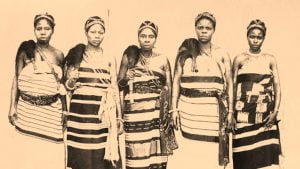In every society, there are different types of constituted authority that enforces law and order. This authorities varies from one community to another. In most African societies especially in Nigeria, those who perform certain duties for good of all, form the constituted authority. This position may be conferred on them or inherited; examples are Obas, Obis, and Emirs. There are also authorities constituted through election.
All constituted authorities have power to perform certain obligations to their followers. They help to ensure that rules designed to control the operations of the society and its institutions are enforced. They also help to maintain order for the benefit of all.

In this article, we will be taking a vivid look at the different types of Constituted authority and the functions they perform. But before we move into that, it is pertinent to explain the meaning of constituted authority.
Also read: Structure of the civil service of Nigeria
Meaning of constituted authority
Constituted authority is simply the body which is given legal powers that enables it to exercise control over the people and specific aims and objectives. Constituted authority comprises of people who are appointed or elected to an office to follow and implement laid down policies.
With their election or appointment, they acquire legitimate power to perform obligations to the society. The type of leadership they offer determines their continuity in office over a given period by re-election or re-appointment. With this understanding, leaders often try to be fair and just
To further understand the meaning, importance and types of constituted authority, i highly recommend that you watch the video below:
Also read: Best time to read and understand effectively
Four (4) Types of constituted authority
1. Democratic authority
2. Traditional authorities
3. Bureaucratic authority
4. Charismatic authority
1. Democratic Authority: This type of authority is been practiced in Nigeria. It was borrowed from western democracy. Democracy constituted authority involves electing people to offices of power or authority either by open closed election. They are respected and obeyed by their followers, since they are given power to decide and administer the recourses.

People in authority must be careful on how use power given to them by their people. In democratic constituted authority, the citizens normally bear the consequences of their choice of leadership. Any abuse of power may lead to rejection or loss of position.
The first time in the History of Nigeria Democracy, opposition party, All Progressive Congress (APC) defeated and took over power at federal level from the ruling party, Peoples Democratic Party (PDP) on 29th May 2015.
2. Traditional authority: It is commonly practiced in most African society as is the case in Nigeria. Traditional authority is mainly acquired by heritance. Here people perform certain duties because of the position they hold. They perform the duties for the good of their subjects, for instance, in Nigeria there are traditional titles like Obas, Emirs, Chiefs and Obis.

These titles are either conferred on them or inherited. Sometimes, these title holders abuse their offices and the people find it difficult to dethrone them like the democratically constituted authority where officers who abuse their offices can be sanctioned or lose their position due to non-re-election.
3. Bureaucratic Authority: This type of authority is practiced in government organizations such as the civil service. In this system, officers are appointed through civil service commission, from clerical officer to the permanent secretary. It creates its own unique organizational structure of promotion and discipline.
Bureaucratic constituted authority involves complicated official rules guiding the civil structure.
Also read: Richest doctors in Nigeria and their Networth
4. Charismatic Authority: Charismatic authority is operated in the religious circle. There are certain duties performed by Muslims and Christians leaders. The Imams and Bishops are given high regards and are respected by the community.
Their actions are carefully watched and influence the behavior of members of the community. Even in traditional shrines, there are lower and high priest. They all perform certain functions bestowed on them by their followers. Any disobence by these leaders can be accompanied with loss of position or divine wrath.
Importance of constituted authority
1. Maintainance of peace and order: Constituted authority helps to ensure that there is law and order in the society. Those who are in authority are usually given the power to make and enforce laws that will protect the lives of the followers and stop disorderliness.
Take for instance, in Democratic Authority, those in power (Executive, Legislature and Judiciary) has the legitimate power to make laws, interpret the laws and enforce it.
2. Establishment of sense of direction: Constituted authority also help to install a sense of direction in the society. This is so because the people believes that those in authority are more knowledgeable than they are.
It applies in Traditional authority and Charismatic Authority. Here, the people usually follow their leaders with questioning directions given to them.
3. Ensuring the achievements of common goals of the good of all: Constituted authority is also a way of providing the the benefit of the society and not just a single person. Those who are in authority are usually charged with the responsibility and duty of providing for every member of the society.
This is usually done by constructing public hospitals, roads and other social amenities.
4. Preservation of the culture of the people: Where there is Traditional authorities, the culture and traditions of the people are usually preserved and passed down to their children unborn.
This is made possible with the existence of people (Traditional leaders) who put in a lot of efforts to make sure that the people comply with their local customs and traditions.
So far, we have looked at the meaning, types and importance of constituted authority in the society. Apparently, constituted authorities are very important for the growth and development of any society. They don’t only ensure the prevention of major breakdown of societal laws and order but also preserve their customs and traditions.

Edeh Samuel Chukwuemeka, ACMC, is a lawyer and a certified mediator/conciliator in Nigeria. He is also a developer with knowledge in various programming languages. Samuel is determined to leverage his skills in technology, SEO, and legal practice to revolutionize the legal profession worldwide by creating web and mobile applications that simplify legal research. Sam is also passionate about educating and providing valuable information to people.
Well understood and easy grammar. I love this site
I love it
Thanks so much
Well understood 👍 thank you
Well understood 👍😊 with easy English words . Thank you 😀👍👍👍👍👍👍👍👍💯💯💯💯💓💞💕💌❣️💟💔💖💗
This is good 💯💯💗💖💔💕💞💓
Thank you ????